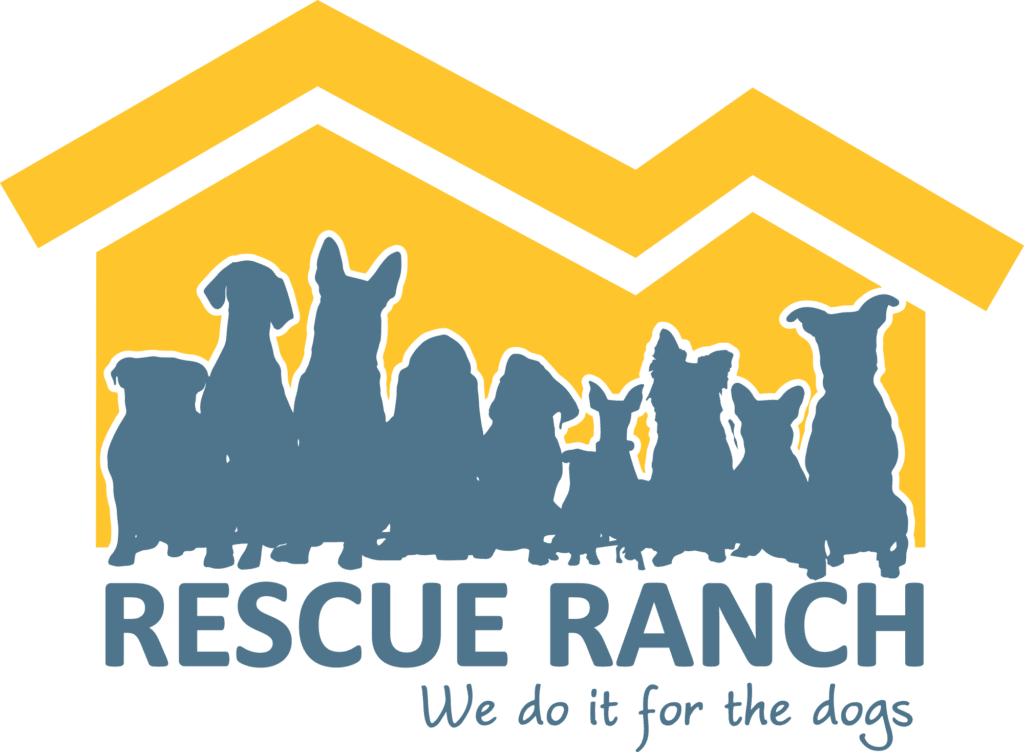Last August, I published an article about Linda Kusaka a dedicated Rescue Ranch volunteer who fosters senior special needs dogs. In that post, I wrote that fostered dogsmake up nearly half of the animals that the ranch is responsible for. As the average number of ranch residents continues to rise, so does the number of dogs in foster, especially puppies. This places enormous pressure on our limited pool of volunteers. Want to foster Rescue Ranch puppies? It’s hard work, but it saves lives.
Puppy fostering isn’t all unicorns and rainbows
Everyone loves puppies. They’re cute and cuddly, and, when they’re very small, they look like little beanie plush toys. Easy, right? Wrong. Well, they are cute and cuddly, that much is true. But, caring for them and ensuring their survival is not always easy. In fact, most of the time, it’s darn hard.
Mothers who are about to whelp and neonates, need round-the-clock supervision. If the mother isn’t producing enough milk, her babies won’t thrive. They need to be fed every three hours, regardless. If she’s inexperienced, a mother might take time to figure out what to do. She might be clumsy, or not attentive enough. She might accidentally step or roll over on a pup. If she’s had a caesarian, she might have trouble bonding with her babies.
As the pups grow, new challenges arise. Do they have diarrhea? Is it giardia? Coccidia? Do they need medication? Are they gaining weight appropriately? Do they need supplemental bottle feeding?
After a month, puppies start to switch to a solid diet. If they’re otherwise healthy, the transition is seamless. Very occasionally, they struggle. Sometimes they die unexpectedly. For some reason, their body can’t absorb the nutrients in the new food.
So a foster parent needs to stay extra vigilant during the first four to six weeks of their puppies’ lives.
Puppy foster care changes as they get older
As time goes by, a different kind of care is required. Foster parents still need to make sure they’re gaining weight and are healthy, but the focus shifts to socialization. Pups need to socialize with other dogs and people so they can learn proper dog etiquette. They require time apart from their littermates. This is also when they start to learn what humans expect from them and how to be a good citizen.
Throughout the process, volunteer fosters must deal with the unenviable chores of poop scooping , bedding changes, laundry and rudimentary house training. They also ensure that puppies make it to vaccination and wellness appointments. Many fosters post videos and pictures on social media to help find loving homes for all of their charges.
And let’s not forget that, initially, mothers and puppies often have to be quarantined. Have they been exposed to parvo virus? Distemper? Or other serious diseases? Very young pups can’t be vaccinated.
Puppy fosters don’t always come in families. There are orphaned neonate litters that have to be hand fed. Then there are the older solo puppies that are still too young for the shelter and need to learn what it means to live in a home. The list goes on.
Rescue Ranch needs more puppy fosters
I share a house with volunteer fosters. In recent months, Rescue Ranch has been deluged with so many puppies of all ages, we commonly have more than 20 puppies at the house, sometimes up to 30. And that’s not counting mothers, adult fosters and house dogs. Other foster homes are also full. We urgently need more volunteers willing to take on puppies.
Most people don’t have the space for 30 puppies, and they don’t have time to care that many. No one is expected to. It’s only happening now because we don’t have enough foster families. If a volunteer can take one litter, or a couple of older puppies, it helps spread the workload. If they can take a few more, great! Everyone will be healthier and happier if the burden is shared. What’s more volunteers will have more quality time to spend with moms and pups.
Fostering is necessary, but it isn’t a long-term solution to overpopulation
Of course, fostering isn’t a long term solution to overpopulation and unwanted pregnancies. Not only is it irresponsible for dog-owners to expect other people to care for their unwanted puppies, it places a huge burden on shelters everywhere. Saving them isn’t enough, we have to find good homes for all of them. If the last 10 months are any indication, as the moms and 30 puppies at our house find new homes, they will immediately be replaced by more of the same. Fostering won’t solvethe problem, the solution lies in spay/neuter.
Rescue Ranch will always do what it can to give dogs the best chance at the wonderful life they all deserve. But if we want to stem the tide of overpopulation and unnecessary death, spay/neuter is the only viable, humane, long-term solution. Click on the link to learn more about our Low-cost spay-neuter community program RRAAP.
In the meantime, there are moms and puppies who need you. They need your patience, your devotion, your love, your time, your willingness to learn. Can you help? Can you be a puppy foster? You’ll need the disposition, the availability and the set up.
And, yes, it’s hard sometimes, but it’s also rewarding. Volunteer fosters will tell you that, on balance, it’s worth it. When you foster puppies, you save lives. Learn more about the Rescue Ranch Foster program here.


















